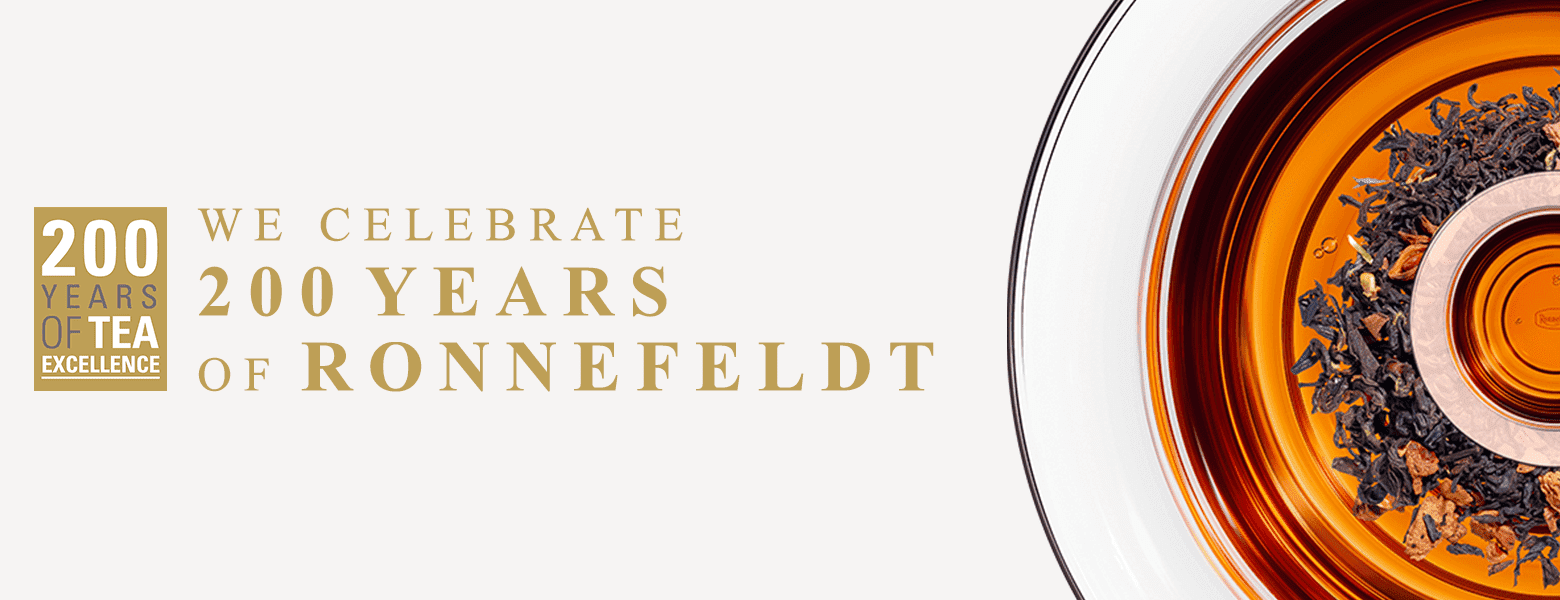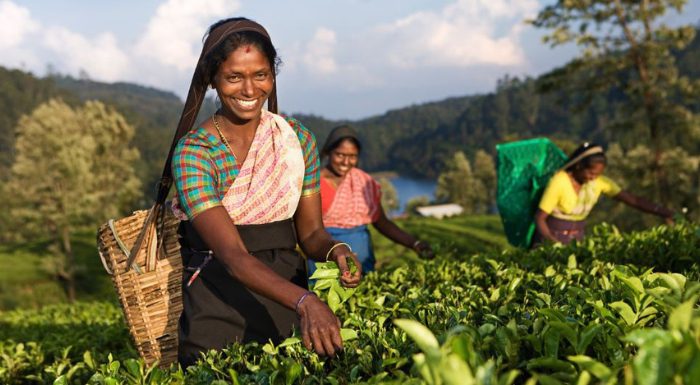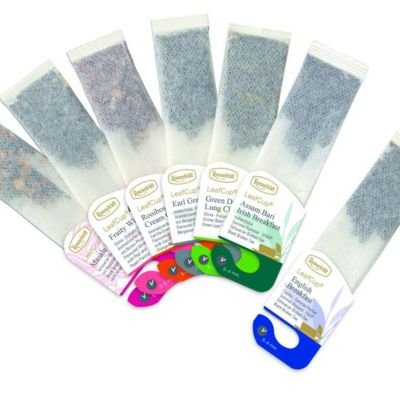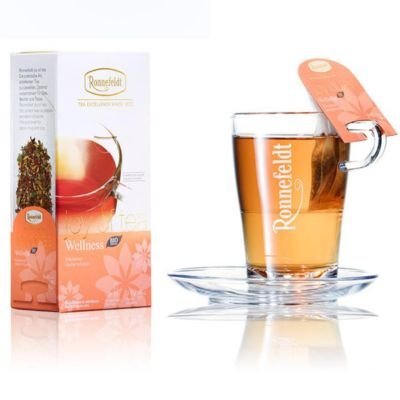
Philosophy
Quality thanks to Orthodox tea production
You can enjoy Ronnefeldt teas in the best hotels and restaurants of the world – and in many countries at home as well.
Tea connoisseurs appreciate our hand-crafted, superior quality teas – every production step is executed carefully, incorporating traditional methods from the picking of the leaves in the tea gardens, blending and tasting of the tea all the way to filling and packing in bags and caddies.
We ensure perfect tea quality for your enjoyment through continuous monitoring of every single step.
“Our tea tasters are highly trained experts and connoisseurs with a keen sense of taste. Using all their senses they examine and taste the prepared tea as well as fruits and herbs, blending these into creations that meet the most discerning tastes of tea lovers all over the world.”


Philosopy
Quality thanks to Orthodox tea production
You can enjoy Ronnefeldt teas in the best hotels and restaurants of the world – and in many countries at home as well.
Tea connoisseurs appreciate our hand-crafted, superior quality teas – every production step is executed carefully, incorporating traditional methods from the picking of the leaves in the tea gardens, blending and tasting of the tea all the way to filling and packing in bags and caddies.
We ensure perfect tea quality for your enjoyment through continuous monitoring of every single step.
“Our tea tasters are highly trained experts and connoisseurs with a keen sense of taste. Using all their senses they examine and taste the prepared tea as well as fruits and herbs, blending these into creations that meet the most discerning tastes of tea lovers all over the world.”

Product Excellence
Excellence as an overall seal of quality
Our responsibility does not end with the blending of our fine teas; it also includes the way how our products are presented and served.
As it is the case with the purchase of our raw material, we exclusively work with reliable partners and use only high-quality packaging materials.
Our packaging is both innovative and appealing in terms of its look and feel.
Thus the perfect preparation of our teas is guaranteed and a unique and pleasurable experience is ensured thanks to easy handling.
“We produce our black tea in several steps using orthodox methods. First the tea is carefully harvested by hand in a continuously monitored process and according to the global principle – two leaves and one bud. The fresh green leaves enter the five-step process of orthodox tea production immediately after harvesting. “

Product Excellence
Excellence as an overall seal of quality
Our responsibility does not end with the blending of our fine teas; it also includes the way how our products are presented and served.
As it is the case with the purchase of our raw material, we exclusively work with reliable partners and use only high-quality packaging materials.
Our packaging is both innovative and appealing in terms of its look and feel.
Thus the perfect preparation of our teas is guaranteed and a unique and pleasurable experience is ensured thanks to easy handling.
“We produce our black tea in several steps using orthodox methods. First the tea is carefully harvested by hand in a continuously monitored process and according to the global principle – two leaves and one bud. The fresh green leaves enter the five-step process of orthodox tea production immediately after harvesting. “
Sustainability
A prior core of Ronnefeldt teas
For 200 years, Ronnefeldt has been known for an unique taste of tea.
No distance is too great and no tea garden too far away for us – our passion for tea and the highest quality standards have guided us since Johann Tobias Ronnefeldt founded the company in 1823.
For generations we have done business in a fair and sustainable manner, because we care deeply about having a good conscience towards nature and society.
“This means fostering an atmosphere of respect, trust and responsibility in our daily interactions. Our first sustainability report shows our clients, employees and other interested parties how serious we taking the subject of sustainability.”


Sustainability
A prior core of Ronnefeldt teas
For 200 years, Ronnefeldt has been known for an unique taste of tea.
No distance is too great and no tea garden too far away for us – our passion for tea and the highest quality standards have guided us since Johann Tobias Ronnefeldt founded the company in 1823.
For generations we have done business in a fair and sustainable manner, because we care deeply about having a good conscience towards nature and society.
“This means fostering an atmosphere of respect, trust and responsibility in our daily interactions. Our first sustainability report shows our clients, employees and other interested parties how serious we taking the subject of sustainability.”

Eco Friendly
Controlled materials
We apply the highest quality standards for selecting and using all packaging materials.
Most of our paper and wood-based materials that are used, for example, for the boxes and labels of our LeafCup®, Tea-Caddy® and Joy of Tea® products are FSC® certified and come from sustainable forestry.
We also limit our use of materials to what is actually needed.
“We produce our black tea in several steps using orthodox methods. First the tea is carefully harvested by hand in a continuously monitored process and according to the global principle – two leaves and one bud. The fresh green leaves enter the five-step process of orthodox tea production immediately after harvesting. “
Eco Friendly
Controlled materials
We apply the highest quality standards for selecting and using all packaging materials.
Most of our paper and wood-based materials that are used, for example, for the boxes and labels of our LeafCup®, Tea-Caddy® and Joy of Tea® products are FSC® certified and come from sustainable forestry.
We also limit our use of materials to what is actually needed.
“We produce our black tea in several steps using orthodox methods. First the tea is carefully harvested by hand in a continuously monitored process and according to the global principle – two leaves and one bud. The fresh green leaves enter the five-step process of orthodox tea production immediately after harvesting. “

Ronnefeldt Sustainability Report
Naturally guided by passion and responsibility
Tea is grown throughout the world. Unfortunately, the environmental standards in many of these countries are often low. For Ronnefeldt, organic production is particularly relevant, since the raw material tea as a primary product is affected by climate change and environmental pollution.
This has an impact on the foundation on which our business is built.
This is why it is important to us to procure many different varieties in organic quality and to minimise our use of resources and packaging materials.
To ensure environmental protection in the growing regions we subject our suppliers to mandatory requirements regarding compliance with the statutory provisions on plant protection products and pollutants.
“Would you like to find out more about sustainability? Then download our sustainability report.”

Ronnefeldt Sustainability Report
Naturally guided by passion and responsibility
Tea is grown throughout the world. Unfortunately, the environmental standards in many of these countries are often low.
For Ronnefeldt, organic production is particularly relevant, since the raw material tea as a primary product is affected by climate change and environmental pollution.
This has an impact on the foundation on which our business is built.
This is why it is important to us to procure many different varieties in organic quality and to minimise our use of resources and packaging materials.
To ensure environmental protection in the growing regions we subject our suppliers to mandatory requirements regarding compliance with the statutory provisions on plant protection products and pollutants.
“Would you like to find out more about sustainability? Then download our sustainability report.”
Premium Quality
Variety and premium quality for our clients
We take responsibility for our products seriously throughout every stage of production: The health of our clients is always the highest priority for us.
We comply with the EU Health Claims Regulation and make no claims as to the effectiveness of our products.
We adhere to the EU Food Information Regulation and communicate all ingredients, allergens, nutritional values and batch numbers.
Independent, accredited laboratories test our teas for consistently high quality.
Non-food items and materials are tested for food safety. Our production in Worpswede is kosher and halal certified.
Our hygiene management system is HACCP compliant.
“We are constantly working on ways to make it possible for our clients to experience the many facets of tea. Important factors here include:
You need to be patient and passionate if you want to make it in the tea business.
We promote sustainability in our daily actions and business relationships and take a long-term approach – just like our founder Johann Tobias Ronnefeldt did.“


Premium Quality
Variety and premium quality for our clients
We take responsibility for our products seriously throughout every stage of production: The health of our clients is always the highest priority for us.
We comply with the EU Health Claims Regulation and make no claims as to the effectiveness of our products.
We adhere to the EU Food Information Regulation and communicate all ingredients, allergens, nutritional values and batch numbers.
Independent, accredited laboratories test our teas for consistently high quality.
Non-food items and materials are tested for food safety. Our production in Worpswede is kosher and halal certified.
Our hygiene management system is HACCP compliant.
“We are constantly working on ways to make it possible for our clients to experience the many facets of tea. Important factors here include:
You need to be patient and passionate if you want to make it in the tea business.
We promote sustainability in our daily actions and business relationships and take a long-term approach – just like our founder Johann Tobias Ronnefeldt did.“
For generations we have done business in a fair and sustainable manner, because we care deeply about having a good conscience towards nature and society.
“This means fostering an atmosphere of respect, trust and responsibility in our daily interactions. Our first sustainability report shows our clients, employees and other interested parties how serious we taking the subject of sustainability.”

Ethics
Ethical tea partnership
Since 2013 we have been a member of the Ethical Tea Partnership (ETP), a non-profit organisation that works in specific tea growing countries to promote socially and environmentally sustainable business practices.
ETP audits tea producers and small farmers on a regular basis and helps them locally to meet internationally recognised standards.
ETP’s work improves the progress that is being made towards attaining the United Nation’s Sustainable Development Goals in tea-growing regions.
As well as supporting communities on the ground with our programmes across Africa and Asia, ETP also leads the sustainability agenda through piloting business innovations and influencing policy.
“Ronnefeldt supports these efforts by purchasing its raw materials preferably from ETP certified tea gardens.”


Ethics
Ethical tea partnership
Since 2013 we have been a member of the Ethical Tea Partnership (ETP), a non-profit organisation that works in specific tea growing countries to promote socially and environmentally sustainable business practices.
ETP audits tea producers and small farmers on a regular basis and helps them locally to meet internationally recognised standards.
ETP’s work improves the progress that is being made towards attaining the United Nation’s Sustainable Development Goals in tea-growing regions.
As well as supporting communities on the ground with our programmes across Africa and Asia, ETP also leads the sustainability agenda through piloting business innovations and influencing policy.
“Ronnefeldt supports these efforts by purchasing its raw materials preferably from ETP certified tea gardens.”

Our Partnership
Childaid network
Childaid Network is committed to the education of needy children and youth to eradicate poverty and to give them a better future.
The foundation’s work is focused primarily on the Assam tea region in north-eastern India, but it also has projects in Nepal, Bangladesh and Myanmar.
Childaid Network supports families in planting their own small tea gardens so that they can secure their own livelihood.
Around 1,000 families have already planted their own micro gardens and have organised themselves into cooperatives to sell the tea.
We plan to work even closer with Childaid Network in the future.
“Many things need to happen if we want to give children a chance at a better future: Fundamental improvements are necessary at nearly all public schools. Organisations like Childaid Network cannot reach this goal alone. This is why Ronnefeldt has partnered with Childaid Network to support its efforts, initiatives and projects.”



Our Partnership
Childaid network
Childaid Network is committed to the education of needy children and youth to eradicate poverty and to give them a better future.
The foundation’s work is focused primarily on the Assam tea region in north-eastern India, but it also has projects in Nepal, Bangladesh and Myanmar.
Childaid Network supports families in planting their own small tea gardens so that they can secure their own livelihood.
Around 1,000 families have already planted their own micro gardens and have organised themselves into cooperatives to sell the tea.
We plan to work even closer with Childaid Network in the future.
“Many things need to happen if we want to give children a chance at a better future: Fundamental improvements are necessary at nearly all public schools. Organisations like Childaid Network cannot reach this goal alone. This is why Ronnefeldt has partnered with Childaid Network to support its efforts, initiatives and projects.”





